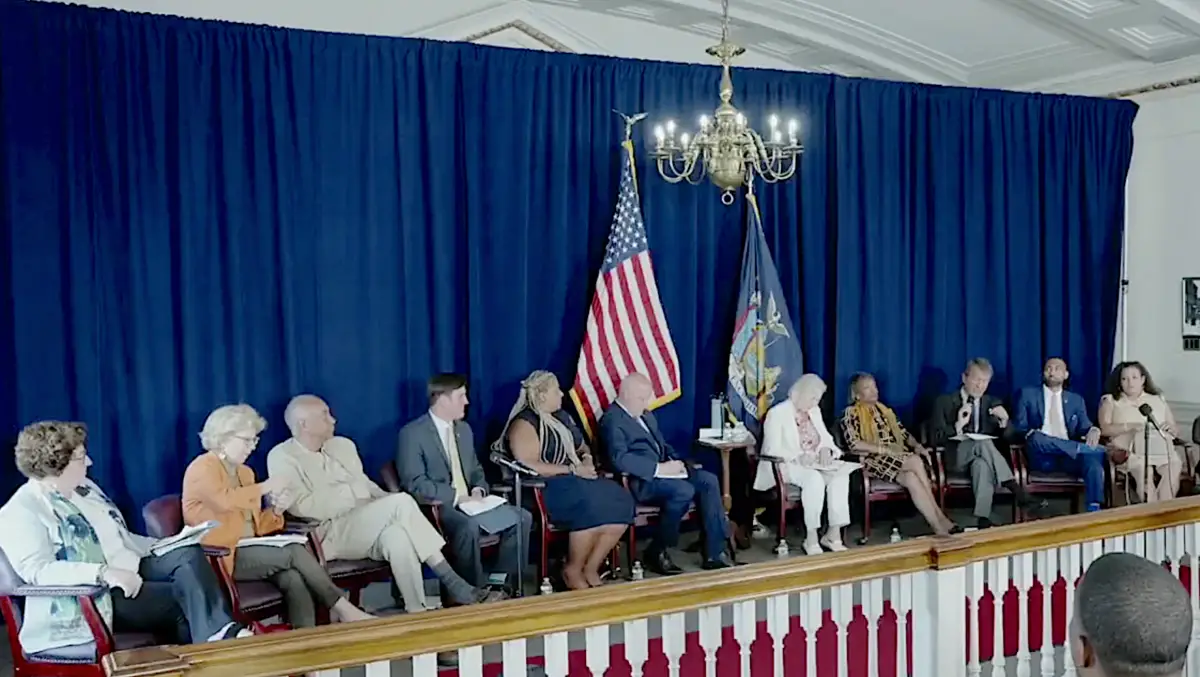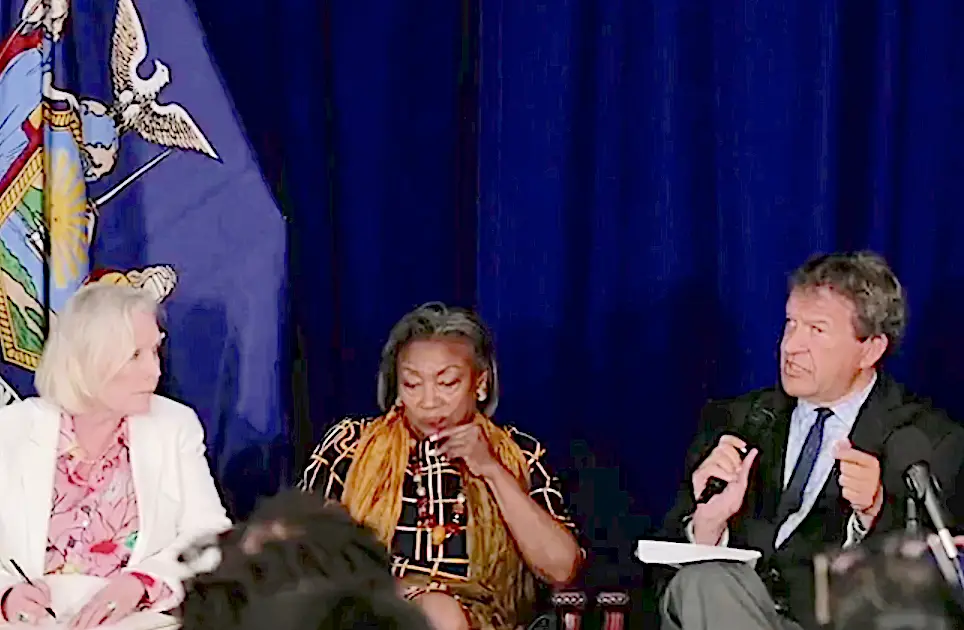Local officials get White House guidance on seeking federal funds
While speculation was running rampant on July 21 about whether Westchester County Executive George Latimer would decide to run against incumbent Congressman Jamaal Bowman in a Democratic Primary, Latimer was focused on government business at a meeting in Mount Vernon. Latimer joined with other regional leaders in a meeting with Senior Advisor to President Biden and White House Infrastructure Coordinator Mitch Landrieu, who briefed them on the best ways to go after the mountain of new federal funding that’s available for infrastructure projects.

That same day, the publication Jewish Insider had run a story highlighting frustration among some Jewish leaders and establishment Democrats in the 16th Congressional District with Rep. Bowman’s stand on Israel. Among the things that upset them were Bowman’s vote against a House resolution stating that Israel is not a racist country and Bowman’s boycott of a speech given to Congress by Israeli President Herzog. The story mentioned that Latimer was seen as a potentially strong alternative to Bowman.
Latimer had previously confirmed that he was approached to consider running against Bowman in a primary. Latimer subsequently told the Business Journal he had not made a decision and declined to identify who had suggested he consider running.
The roundtable meeting at Mount Vernon had been coordinated by Sen. Kirsten Gillibrand. Those attending in addition to Latimer included: Mount Vernon Mayor Shawyn Patterson-Howard; State Sen. Majority Leader Andrea Stewart-Cousins; State Sens. Shelley Mayer, Nathalia Fernandez and Jamaal Bailey; Assemblymembers J. Gary Pretlow, MaryJane Shimsky and Chris Burdick; and Putnam County Executive Kevin Byrne.
Gillibrand said she is going to be the lead senator on a bill to establish a $5 trillion infrastructure funding bank and is seeking Republicans to become co-sponsors to make it a bipartisan effort. That would be in addition to the $1.2 trillion in funding already in the pipeline as a result of the recently-passed infrastructure bill.
“We can’t rebuild just the way it was, so I have legislation that I’ve written for this Congress that we’re trying to get a vote on about just resiliency,” Gillibrand said. “It’s called The Resilient Highways Act and you rebuild infrastructure in a way that can withstand the next 100 years of these horrible floods. That’s something that would make a difference for Mount Vernon and the whole Westchester County as well as the whole state.”
Gillibrand said she and her staff will create a grant guide of all the federal programs that will be providing money for infrastructure, flooding relief and other needs.
“We can probably do this in the next few weeks so it’s not a long-term thing,” Gillibrand said. “All of these projects have to be applied for. I will commit to you to try to make it easier to apply for the money.”
Landrieu said that the infrastructure funding that the federal government has available right now is “more money than the federal government has ever shown up with in your lifetime.”
He said that the best way to go after the federal money is on a regional basis.
“Water does not know your legislative boundaries,” Landrieu said. “When the flood comes it does not go ‘I’m in the assemblywoman’s district, let me not go into the senate district.’ The water’s going to go where the hell the water wants to go.”

He said that leaders at various levels of government need to get together and decide what their priorities are before applying for federal funding.
“If you apply for everything you’re likely not to get anything” Landrieu said. “If you apply for everything it means there’s not a whole lot of planning going on and there’s not a lot of collaboration, communication and coordination happening. You’ve got to get together and get focused on what the most important things are. The money comes down to the ground basically in two ways: one way is straight to the governor. This state has already gotten a check for $10 billion. It’s already up in the state. Y’all have it. The second way you get money is through application for grants (direct to the federal government).”
Landrieu said that so far the Biden Administration has “pushed $220 billion out of the door. We have 35,000 projects in some level of formation across the country and there is a substantial amount of money that has already come to New York.”
Latimer said that Westchester County has projects on the drawing board ready to go if new federal money is committed or if the county can tap into federal funds that New York state already has received.

Latimer explained that the county has seven wastewater treatment plants, four of them on the Sound Shore side and three of them on the Hudson River side. Latimer said that the county is very concerned about the vulnerability of the plants to rising water levels both in the Hudson River and Long Island Sound.
“Each of those plants needs additional investment to modernize, particularly the Yonkers plant in Ludlow, Southwest Yonkers, which is the largest of our sewage treatment plants,” Latimer said. “We have a system of parkways that were built a long time ago. The Bronx River Parkway, which is owned by Westchester County, was built in the 1920s. We name them after the rivers that are right next to them: the Saw Mill River; Hutchinson River; Bronx River. The river and parkway become as one whenever we have enough water out there.”
Latimer said that the pavement needs to be raised in spots to prevent flooding and added that he’s concerned about protecting railroad tracks from flooding, especially the Metro-North Hudson Line tracks along the Hudson River that also are used by Amtrak.
“We’re taking about projects that probably would get funding approved in 2024,” Latimer told the Business Journal. “If we can begin construction on them within ’24 that would be great. It’s just as likely we might be looking at ’25, which would be my last year as county executive. I may be term-limited but the things I believe in aren’t term-limited.”